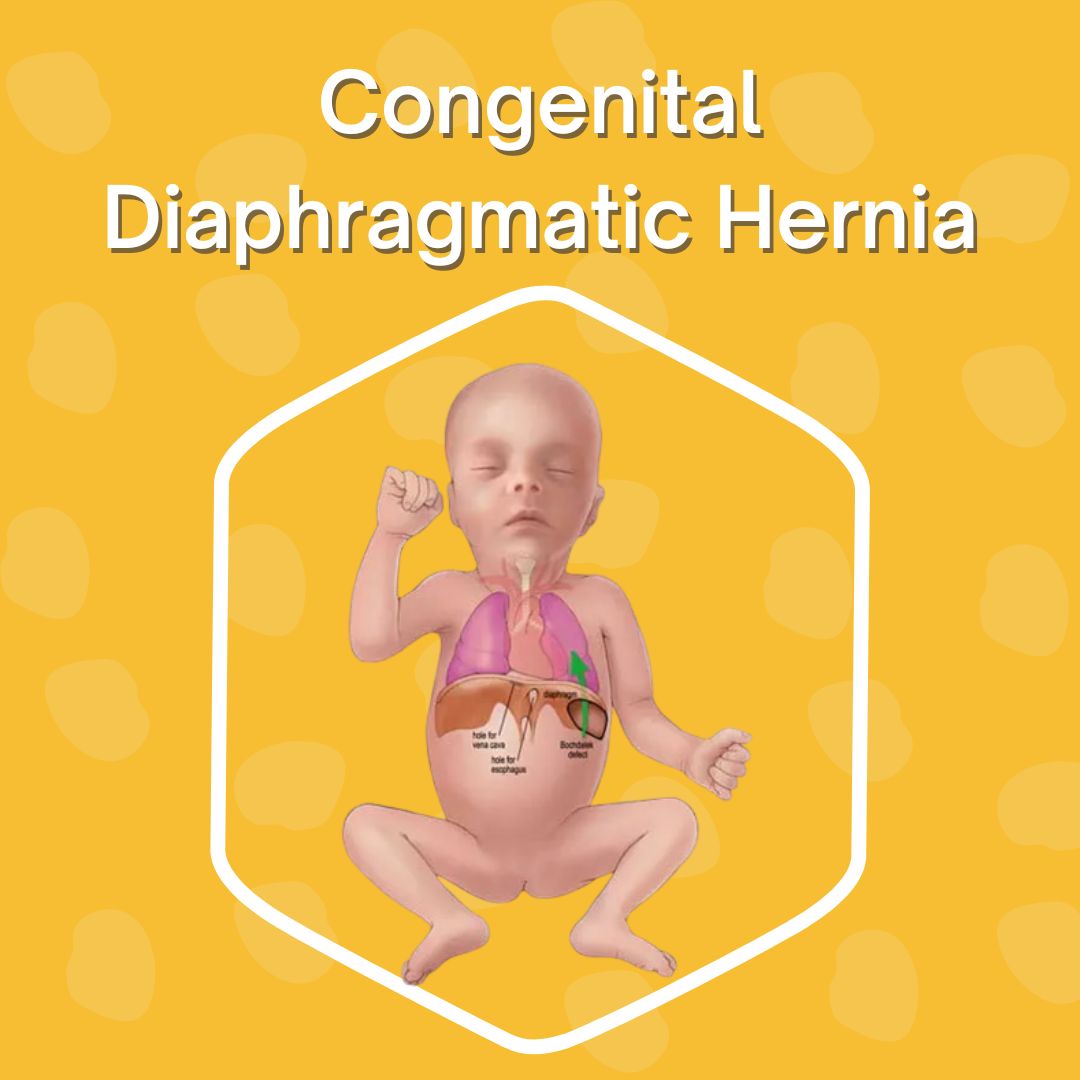Congenital Diaphragmatic Hernia (CDH) is a rare but serious birth defect that occurs when the diaphragm, which is the muscle that separates the chest from the abdomen, develops incompletely. This causes a hole in the diaphragm through which abdominal organs such as the intestine, stomach, liver, and spleen, move into the chest leaving little to no space for the lung to grow.
Causes
We still do not know the exact reason why the diaphragmatic hernia occurs. Genetic and environmental factors, both, have been implicated. CDH is also seen to occur with some syndromes. However, in the vast majority of patients, no cause of CDH can be identified.
Symptoms and Diagnosis of Congenital Diaphragmatic Hernia
Today, most cases of congenital diaphragmatic hernia are diagnosed on prenatal ultrasound. Babies born with congenital diaphragmatic hernia struggle to breathe and if not treated appropriately, these babies may not survive more than a few hours after birth. Some babies show symptoms a little later. These symptoms are:
- Difficulty in breathing
- Recurrent pneumonia
Treatment Options
The treatment of congenital diaphragmatic hernia involves:
- Medications and ventilatory support to help the lungs breathe and adapt
- Surgery to close the hole in the diaphragm.
Congenital diaphragmatic hernias can be treated at large hospitals that have all the required infrastructure. It is recommended that the baby is delivered in such a hospital to begin with, so that treatment can be initiated during delivery itself. These babies require to be kept in the Neonatal ICU and usually need ventilator support. Surgery to close the hole in the diaphragm is performed after 48 hours of birth. Depending on the size of the defect in the diaphragm, the surgery may be performed by minimal access techniques.
About Dr. Geeta Kekre
Dr. Geeta Kekre is a Paediatric Surgeon in Pune She is a specialist in pediatric minimal access surgery including robotic surgery as well as reconstructive pediatric urology. After ten years in Mumbai, Dr. Kekre returned to her hometown bringing with her a passion for the surgical care of children and a distinct set of skills in the areas of pediatric minimal access surgery, pediatric endourology, fetal hydronephrosis and antenatal parental counseling, pediatric incontinence, and voiding dysfunction. Her focus is on tailoring surgical therapy to allow her patients to have as active and fun a childhood as possible while delivering the best achievable medical outcomes.

